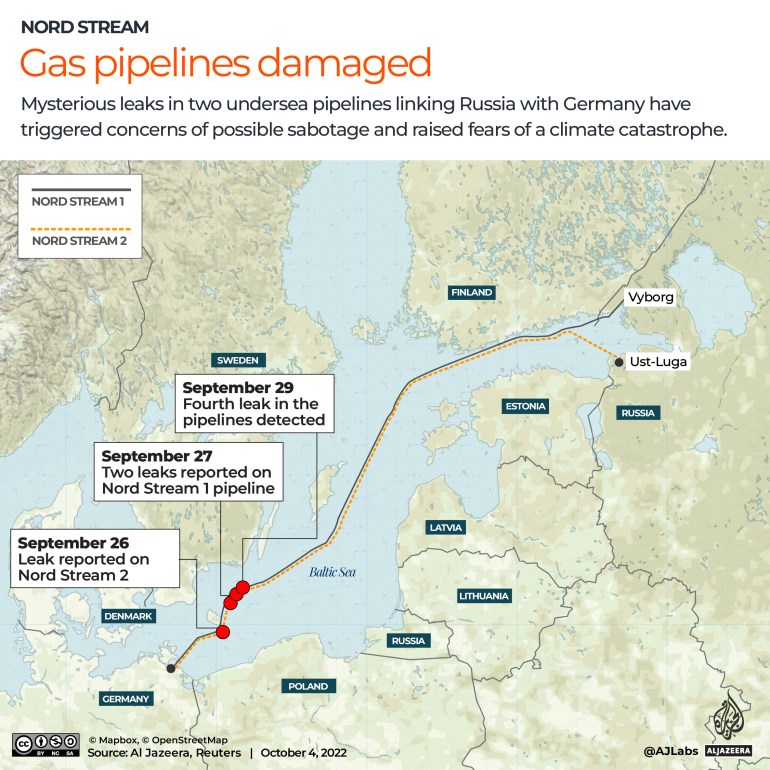Ukrainian diving instructor Volodymyr Z. is accused of being part of a team that blew up the gas pipelines.
According to German media, Germany has issued a European arrest warrant against a Ukrainian diving instructor for his alleged involvement in acts of sabotage on the Nord Stream pipeline in the Baltic Sea.
German investigators believe that Volodymyr Z. was a member of a team that placed explosive devices on the pipeline route that will transport natural gas from Russia to Germany in September 2022, German media reported on Wednesday. Under German law, the suspect’s last name cannot be published.
Ukrainian President Volodymyr Zelensky has repeatedly denied that his country was behind the acts of sabotage that disrupted Russian gas exports to the European Union, dealing a severe blow to Moscow’s energy revenues.
According to a report in the “Süddeutsche Zeitung”, the “Zeit” and the ARD, which cites anonymous sources, Wolodymyr Z. is said to have last lived in Poland.
The Polish public prosecutor’s office confirmed on Wednesday that it had received a German arrest warrant against a Ukrainian named “Wolodymyr Z.”, who is considered a suspect in the Nord Stream attack.
The arrest warrant was received in June, but the suspect had already left for Ukraine last month. In addition, the authorities were unable to prevent him from leaving the country because the relevant information had not been made available to the border guards.
The German investigation has identified another man and a woman who, like Volodymyr Z., are also Ukrainian diving instructors. However, no arrest warrant has been issued against them for the time being, according to the German media report.
Several explosions damaged the two gas pipelines Nord Stream 1 and 2 on September 26, 2022. The explosions were registered near the Danish Baltic Sea island of Bornholm. Shortly afterwards, four leaks were discovered.
Until now, Russian natural gas had flowed to Germany via Nord Stream 1, which has a capacity of 63 billion cubic meters per year. The similarly large Nord Stream 2 pipeline was not yet in operation.
The construction of the route was aimed at diverting Russian gas exports to the EU away from Ukrainian pipelines, on which the country had previously been heavily dependent.
Russia’s gas sales to the EU were by far the country’s most lucrative until the large-scale invasion of Ukraine in February 2022 and the political disputes that followed brought trade to a near standstill.
Russia and the West accused each other of being behind the explosions at the Nord Stream pipeline. Both sides denied their involvement and no one has yet claimed responsibility.
Authorities in several countries investigated the case, but Denmark and Sweden closed their investigations without announcing any results.
In January 2023, Germany searched a ship it said may have been used to transport explosives and told the United Nations that it believed trained divers may have attached devices to the pipelines at a depth of about 70 to 80 meters.
In March last year, the New York Times reported that US authorities had seen intelligence information suggesting that a “pro-Ukrainian group” was responsible for the attacks without Zelensky’s knowledge.

It remains to be seen whether the realization that Ukrainians were behind the attack on the pipelines could have a negative impact on German support for Ukraine.
“The amount of resources, money and military equipment that has been funneled from Germany and Poland into Ukraine is considerable,” said Al Jazeera correspondent Dominic Kane in Berlin.
“The current German government says that these developments will have no impact on its relations with Kyiv. But it is obvious that this is a very serious problem.”

